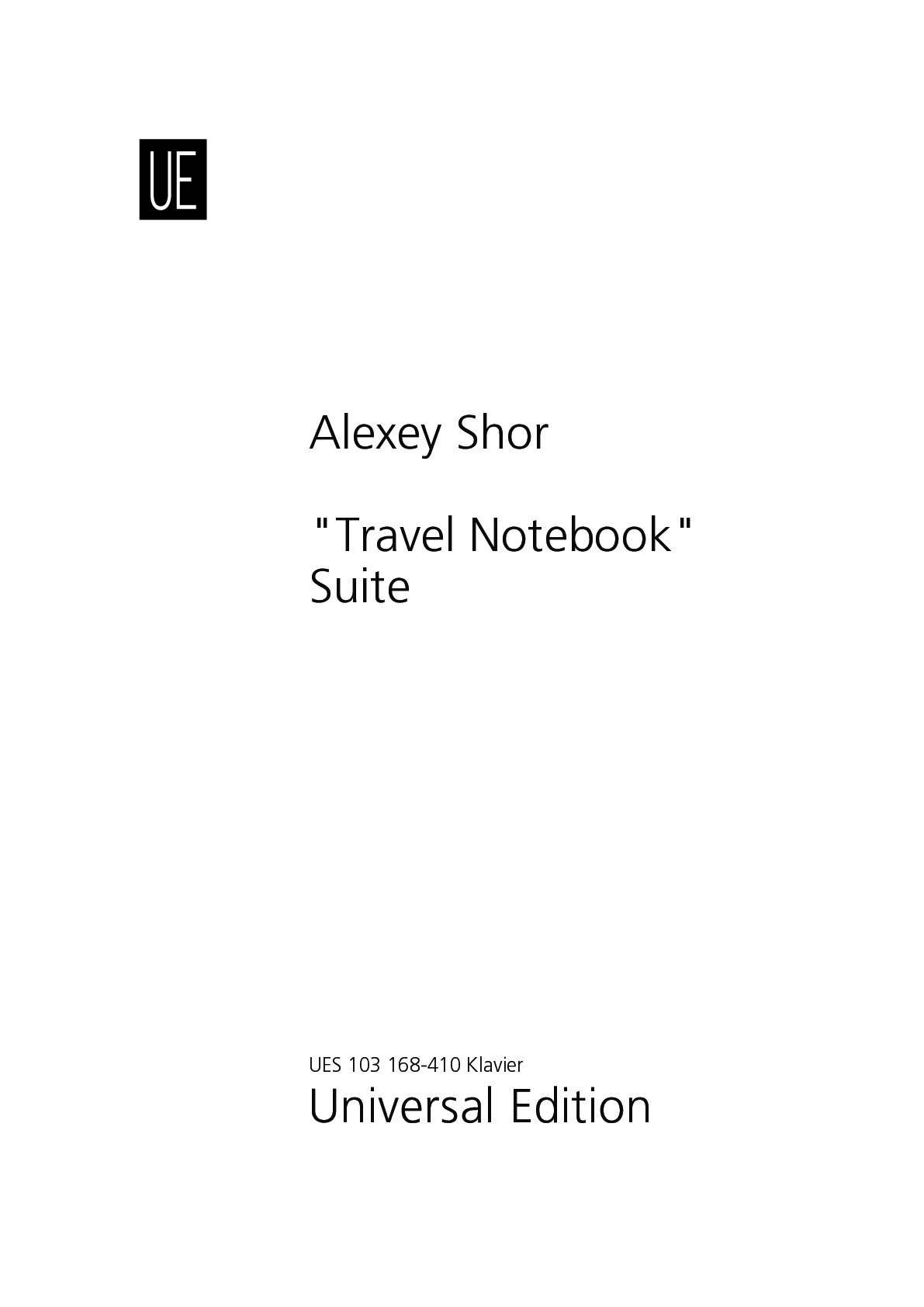

Alexey Shor
"Travel Notebook" Suite
Duration: 23'
Solos:
piano
"Travel Notebook" Suite
Sample pages
Work introduction
“Travel Notebook” is a suite of 7 pieces for piano written by Alexey Shor during his travels. By doing that, Shor continues a long tradition that goes back centuries. Many of the great composers of the past have found inspiration in visiting new places. Liszt's "Années de pèlerinage" are inspired by his travels in Switzerland and Italy. Albeniz wrote many piano pieces inspired by different regions of Spain. More recently Messiaen's "Des Canyons aux Etoiles" was written after a visit to the Great Canyon. The list can go on and on...
Typical of Shor's music, “Travel Notebook” is written in a neoclassical style, with a strong emphasis on melodies and traditional harmony. All the pieces, except for the first one, are inspired by visiting
particular places, but the music is supposed to reflect not the musical styles characteristic to those
places, but rather some of the authors impressions and inspirations during his travels.
The suite opens with a lyrical "Wayfarer's Prayer" which is not associated with any particular place
but rather evokes various feelings related to travel in general: sadness for a place you are leaving, excitement and hope, anxiety at the unknown that lies ahead...
Second piece called "La Rambla" is inspired by Barcelona. It is named after a street in central Barcelona. The Spanish poet Federico García Lorca once said that La Rambla was "the only street in the world which I wish would never end." The music reflects the excitement and energy of the place that will be immediately recognizable to anybody who ever visited Barcelona.
"Addio" was written after a visit to Rome and is a bittersweet musical goodbye to the ancient Roman civilization.
"Luxembourg Garden" is a very famous and popular garden in Paris. The garden is featured prominently in Victor Hugo's novel Les Misérables. It is here that the principal love story of the novel unfolds, as the characters Marius Pontmercy and Cosette first meet. It is a beautiful and romantic place and the music reflect that.
"Rubicon" is a shallow river in northeastern Italy, just south of Ravenna. In 49 BC, Julius Caesar led a single legion over the Rubicon to make his way to Rome. In doing so, he deliberately broke the law and made a civil war inevitable. The phrase "crossing the Rubicon" has survived to refer to any individual or group committing itself irrevocably to a risky course of action. Historians believe that Caesar was undecided as he approached the river but later came to a firm conclusion to cross it and uttered the famous phrase "?lea iacta est" ("the die has been cast"). The music starts hesitantly but ends with the sounds of marching legions and the spirit of complete determination.
"Sorrow" was inspired by a visit to Venice, and reflects the profound sadness at the sights of one of the most beautiful cities in the world struggling to survive the modern challenges (pollution, excessive number of tourists, crumbling infrastructure, problems caused by cruise ships sailing close to the buildings, etc...).
The concluding piece called "Horseman" was written after a visit to the Royal Ascot Race and, naturally, it depicts the excitement, energy and the commotion of a horse race.

